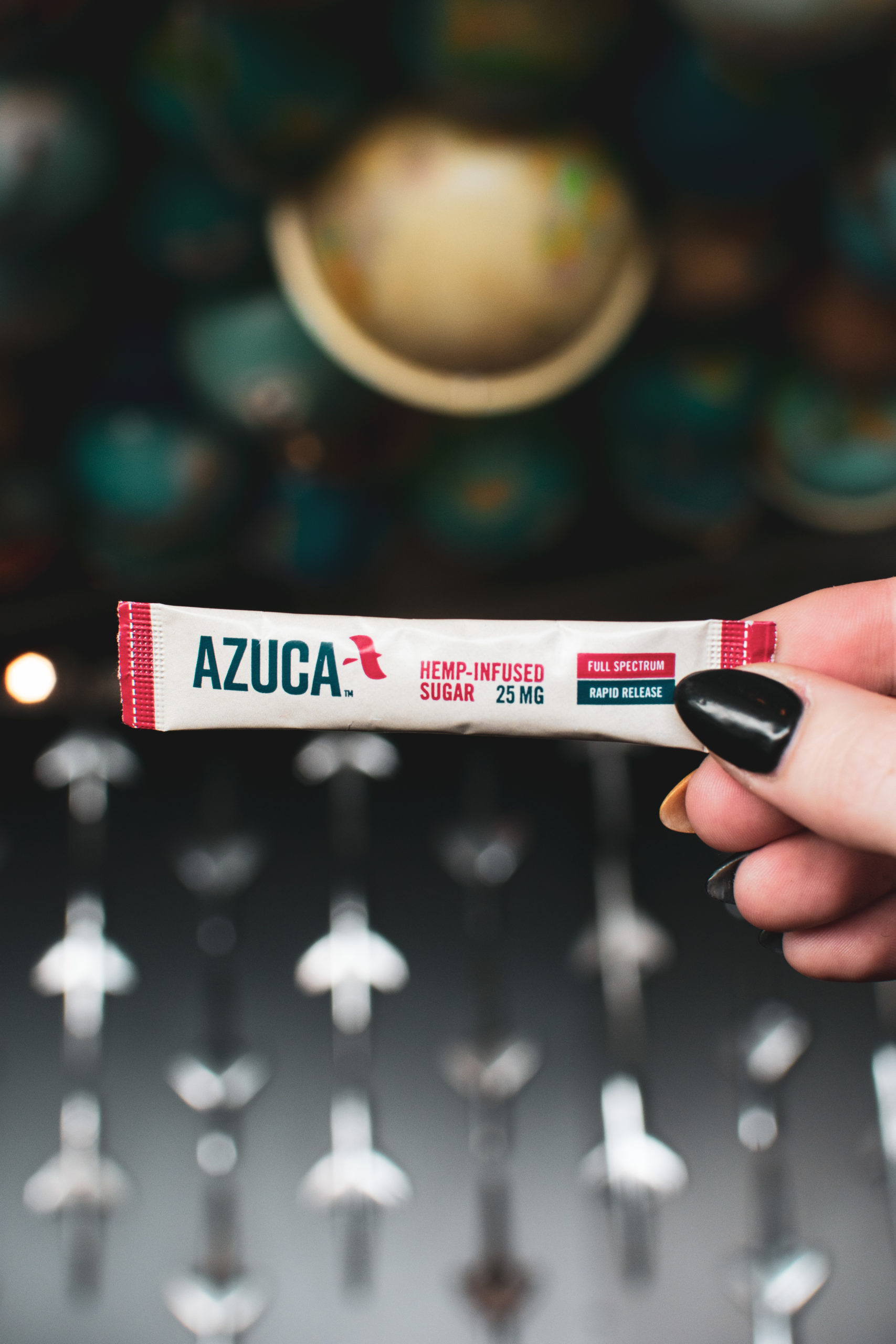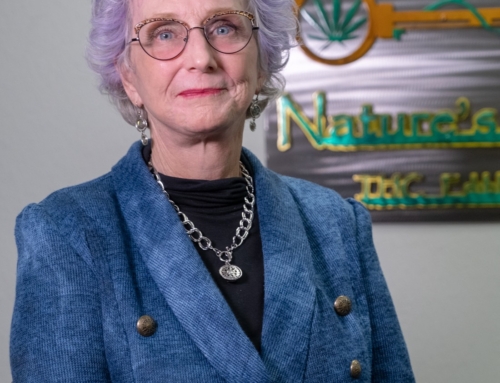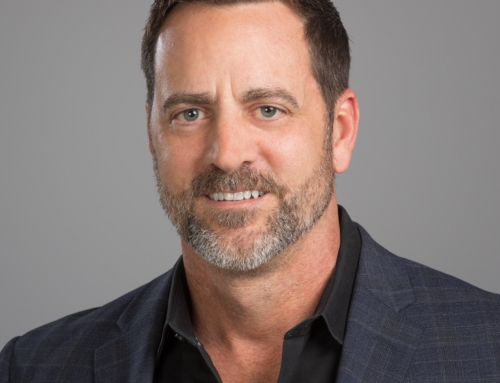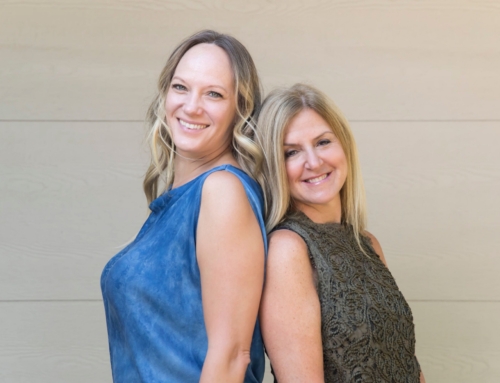Kim Rael is President and CEO of Azuca, an investor-backed culinary technology company focused on commercializing innovative technology to enable fast-acting, highly bioavailable culinary cannabis products for the legal cannabis market. Prior to Azuca, Kim spent over 10 years as a venture capitalist investing in early stage technology companies. Previously, Kim co-founded and served as Chief Operating Officer and Chief Financial Officer of advanced energy company Qynergy. Earlier in her career, Kim held numerous senior level positions at Intel, where she managed a $200 million capital budget and $1 billion program plan. Her former experience as an aide in the U.S. Senate under Senator Jeff Bingaman, allowed for a deep understanding of the public sector, specifically in foreign affairs, and science and technology policy.
Kim currently sits on the 2019-2020 State Regulations Committee of the National Cannabis Industry Association, the Board of Regents for The University of New Mexico and is a member of the Board of Directors of the International Women’s Forum. Her previous board experience includes a five-year tenure as Officer on the New Mexico State Board of Finance. In 2002 and 2003, Kim was named one of New Mexico’s top 40 Power Brokers and recognized as one of the Top 10 Women of Influence in 2006 by the New Mexico Business Weekly. She has a Bachelor’s degree in International Relations from Harvard and an MBA from Stanford.
Thank you so much for doing this with us! Can you tell us the “backstory” about what brought you to the cannabis industry?
My background is in technology and venture capital. After over two decades of a successful career in those fields, I decided to pivot for a number of reasons. I wanted to move into the wellness sector. I was unsure of my next move and unexpectedly–and by a good twist of fate–I was asked by an old friend to be in a focus group to sample a cannabis product developed by Ron Silver—Azuca’s co-founder and Chief Creative Officer. I was skeptical at first because I was not a cannabis consumer. Truthfully, I was fearful, but I trusted my friend and agreed to sample the products. In a nutshell, they were fantastic. I knew immediately that Ron’s TiME™ Infusion process, enabling fast-acting cannabis edibles and culinary-forward products, had potential to disrupt the marketplace and make a strong impact. As I did my due diligence on the industry and Ron’s technology, it was clear that it was time to reinvent the future of cannabis edibles and solve the “edibles problem” of long latency times, poor quality and predictability, as well as to demystify the cannabis experience for new adopters like myself.
Can you share the most interesting story that happened to you since you began leading your company? Can you tell us what lesson you learned from that?
Early on, I was spending a few days with my mom, who I would put into the “never cannabis” category. She seemed exhausted and just didn’t look right but she never complains about anything. Finally, I pulled it out of her that she had not been sleeping because she was being kept awake by severe arthritis pain. I had no idea how she would react, but I suggested that she might try cannabis. Desperate, she said, “At this point I’ll try anything.” She sampled a micro-dose at bedtime and the following morning was amazed that she had slept well and felt great. A cannabis convert at 77! Never in a million years would I have expected that!
Can you share a story about the funniest mistake you made when you were first starting? Can you tell us what lesson you learned from that?
I took some of our fast-onset Hemp CBD Infused Chocolate coins to a board meeting and tossed them on the table. Shortly, everyone in the room seemed very relaxed and happy. That’s a solid way to have a productive board meeting with some chilled out board members, though it wasn’t my intention! It was kind of funny. (Note to other CEO’s who would like to mellow out their boardroom, the coins are available on our website, Azuca.shop!)
 Do you have a funny story about how someone you knew reacted when they first heard you were getting into the cannabis industry?
Do you have a funny story about how someone you knew reacted when they first heard you were getting into the cannabis industry?
A few months ago I was shopping at Costco and I ran into an old friend who I hadn’t seen in a few years. She is in her mid 80‘s and she asked me what I was doing now. So, I told her, expecting her to be shocked and maybe upset, but instead, she pulled me aside and whispered in my ear, “I just got my medical card. Will you take me to a dispensary and teach me about cannabis? I want to get off of all of my pain meds…”. Again, she was one of the last people on earth I would have expected would be turning to cannabis for wellness and relief. But the stories keep coming!
None of us are able to achieve success without some help along the way. Is there a particular person who you are grateful towards who helped get you to where you are? Can you share a story?
While I was working towards my MBA at Stanford University, I took an entrepreneurship class with Jim Collins, now the author of several acclaimed books on how companies achieve greatness and how successful leaders in the business and social sectors have built movements that last. Jim’s class was transformative and is relevant not only to my current role in the cannabis industry but also to my entire career working with startups. Jim’s recent research and publications have been particularly useful too, as he’s been working on case studies about how companies have succeeded and failed in times of chaos—and it’s safe to say that a startup industry like cannabis can be pretty chaotic at times! I highly recommend Jim’s book, “Great by Choice,” which studies why some organizations thrive in times of great chaos an unpredictability.
Are you working on any new or exciting projects now? How do you think that will help people?
We’ve had a few extremely exciting products launch this month. We partnered with Wana Brands, the No. 1 edibles brand in the United States, to help them launch the Wana Quick product line, which is designed for maximum bioavailability and rapid onset utilizing our patent-pending TiME™️ Infusion process. This allows us to bring our fast-acting culinary technology to a large universe of cannabis consumers for a more controlled and positive experience.
On the heels of this announcement, we launched our own new product – 25 mg hemp infused single serving sugar sticks. This is another exciting milestone for Azuca to showcase its rapid onset culinary technology and set the bar for product innovation in the hemp CBD industry. We have a few other products in the pipeline which we will share shortly.
Ok. Thank you for all that. Let’s now jump to the main core of our interview. Despite great progress that has been made we still have a lot more work to do to achieve gender parity in this industry. According to this report in Entrepreneur, less than 25 percent of cannabis businesses are run by women. In your opinion or experience, what 3 things can be done by a)individuals b)companies and/or c) society to support greater gender parity moving forward?
A) Individuals:
Being a professional woman in cannabis is no different than being a woman in any other industry I have experienced. Women must make a conscious effort to help other women succeed – we have to support one another. Advocate for your colleagues, mentor women climbing the ladder and advise them on how to advance. Of equal importance, speak out when you see gender discrimination occurring.
b) Companies:
One of my biggest concerns for women in cannabis is the effect that the Golden Rule is bound to have on the industry. In other words, whoever has the gold makes the rules. Men still control the lion’s share when it comes to access to capital and decide which management teams get backed, and that dynamic feels like it is trending against women. I believe companies need to be aware of this and make conscious hiring decisions that reflect the industry they want to help build. We need more senior women managing investment capital in the industry or in 20 years the industry will be as male-dominated as tech is today.
c) Society:
I was intrigued by the Newsweek cover article a few years ago which posited that cannabis was the first multibillion-dollar industry poised to be dominated by women. But when I look around the room at major industry events over the last two years, they are starting to feel almost as gender-imbalanced as the tech and venture capital world I left. We cannot get complacent – both women and men need to actively confront bias, support their female colleagues and back gender parity in the workplace if any long-lasting changes are going to be made in this industry.
You are a “Cannabis Insider”. If you had to advise someone about 5 non intuitive things one should know to succeed in the cannabis industry, what would you say? Can you please give a story or an example for each.
I actually have 4 P’s:
- People: Surround yourself with a strong team. It is critical to get the right team in place, and not be hesitant to make changes quickly.
- Product: Figure out what sets you apart and lean on it. Companies and brands that define markets differentiate themselves. Consumers, partners and investors need to understand your product and brand, and how you deliver value to everyone your product touches. Be clear and consistent with your message, your concept, and your visual identity across all platforms, including social media, digital, packaging, sales collateral, trade presence and media. Your brand must be front and center in every communication and application.
- Pace: Stay up to date. This one seems obvious but I think something that a lot of startup founders and entrepreneurs can struggle with is getting swept up in the details of your own company—so much so that you lose focus on industry progress, competition and new applications. Time is a luxury for entrepreneurs and everything is a high priority task, so ‘staying in the know’ often, and mistakenly, gets put on the backburner. Even if it’s just subscribing to one industry newsletter or reading news headlines at the start or end of your day, an ear to industry happenings goes a long way. This is especially important in such a new and burgeoning industry like cannabis where the rules and regulatory framework, and just about everything else, are changing daily.
- Pivot: Evolve your strategy and business model in “real time.” In cannabis, we are pioneers in the most volatile industry of our lifetime. Everything has the potential to change every day. Successful entrepreneurs in this space will have to embrace and absorb new information daily and pivot their business model and strategy accordingly.
 Can you share 3 things that most excite you about the cannabis industry?
Can you share 3 things that most excite you about the cannabis industry?
- I am excited and proud that we are bringing products to market that are equally attractive to my parents’ generation as they are to my adult children’s generation. It’s amazing that we can reach such diverse audiences with one product line!
- It’s exhilarating to work in an ecosystem defined by unprecedented uncertainty, chaos and regulatory constraints. The industry pushes us to our limits!
- We are really helping people – customers, partners and our respective communities. We’re not just pushing products to market, we’re pushing products that make people feel good and, of course, taste great. Our product line is high quality, fast-acting, predictable and delicious. I love providing something that helps consumers demystify cannabis. Our products are approachable and easy to understand even for cannabis newbies.
Can you share 3 things that most concern you about the industry? If you had the ability to implement 3 ways to reform or improve the industry, what would you suggest?
- The unprecedented volatility and inconsistency in the regulatory environment is a huge challenge. We spend an inordinate amount of time, energy and focus on understanding and complying with the multiple, complex regulatory frameworks that we operate in. We also spend a lot of money on lawyers to ensure we are in compliance.
- It’s challenging to be a startup company in a startup industry. There is no rulebook or set of norms that you can refer to in this industry. Things that are routine or ‘the usual’ in other sectors, like purchasing business insurance, opening a banking account, securing payroll and merchant services are either more complex and expensive in cannabis than other sectors, or sometimes just impossible. There is no guidebook to this industry.
- The need for more research. There is still a dearth of quality research on cannabis because of federal illegality.
Reform Ideas:
- Testing: We are building not only a company, but also a new industry. We believe in triple testing every product before it goes to consumers. However, testing is one of the areas where we need the most reform. The industry needs more resources, research and sensibility in the testing and analytical subsector of cannabis. Often testing requirements dictated by regulators actually exceed the technical capability of the testing infrastructure and capacity of a given market. Because product can’t be shipped across state lines for testing, this creates a local problem and constraint. Getting testing right is in the best interest of the public and consumers, but we have a way to go!
- Hemp in Ingestibles: We are partnering with legislators and regulators to create a safe and sustainable cannabis ecosystem. I recently worked on New Mexico’s Hemp Manufacturing Act (HB581) to establish affirmative legislation enabling the use of hemp in food. I am now working with other industry leaders in the National Cannabis Industry Association to influence and build a prudent regulatory frame that ensures safe and cost-effective access to high quality, pure, precise lab-tested cannabis and hemp products.
- Sensible interstate commerce pacts should be a priority.
What are your thoughts about federal legalization of cannabis? If you could speak to your Senator, what would be your most persuasive argument regarding why they should or should not pursue federal legalization?
Federal descheduling will solve many challenges, from having all states benefit from tax revenue and new jobs creation to finally solving the black-market problem once and for all. Products will be safer through smart regulation and access, and there will be a significant decrease in crime. In the meantime, the SAFE Banking Act is a no-brainer!
Today, cigarettes are legal, but they are heavily regulated, highly taxed, and they are somewhat socially marginalized. Would you like cannabis to have a similar status to cigarettes or different? Can you explain?
Not at all. Cannabis and CBD should be destigmatized – research has shown that cannabis and CBD have health and wellness benefits, which is the total opposite of cigarettes. As mentioned above, legalization will keep the products safe and that is important. It’s difficult to build a national brand when federal regulation and state regulations are not in sync, and different jurisdictions have different policies. Clear, consistent regulation will be embraced by the “good actors” in the industry.
Can you please give us your favorite “Life Lesson Quote”? Can you share how that was relevant to you in your life?
I think this is my all time favorite, because I see life as a unitive whole. I strive to be a master in the art of living, but it’s a life-long journey! (Forgive the original non-inclusive language.)
“A master in the art of living draws no sharp distinction between his work and his play; his labor and his leisure; his education and his recreation. He hardly knows which is which. He simply pursues his vision of excellence through whatever he is doing, and leaves others to determine whether he is working or playing. To himself, he always appears to be doing both”.
-François Auguste René Chateaubriand
You are a person of great influence. If you could inspire a movement that would bring the most amount of good to the greatest amount of people, what would that be? You never know what your idea can trigger. 🙂
My BHAG (Big-Hairy-Audacious-Goal) is to be part of a movement to end addiction, and particularly opioid addiction. There is emerging research that medical cannabis may be an effective component for solving this terrible puzzle.









![“The potential to help people [in this industry] is enormous, but there’s still so much to learn.” – Ramon Alarcon, Witi](https://cf.lakesideremedy.com/wp-content/uploads/2020/12/1thj5ekUyxQ69iLz1JJyODg-scaled-e1607882756286-500x383.jpeg)
